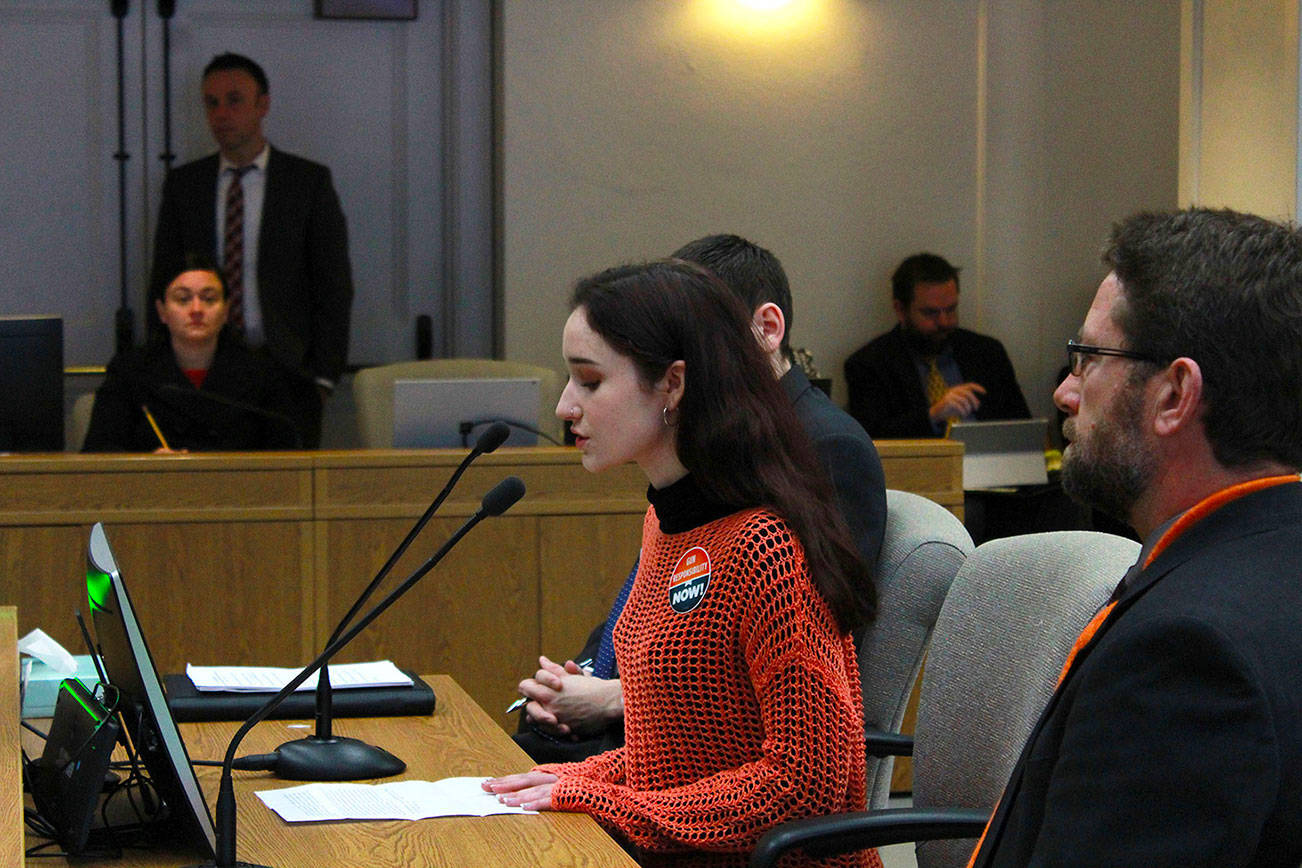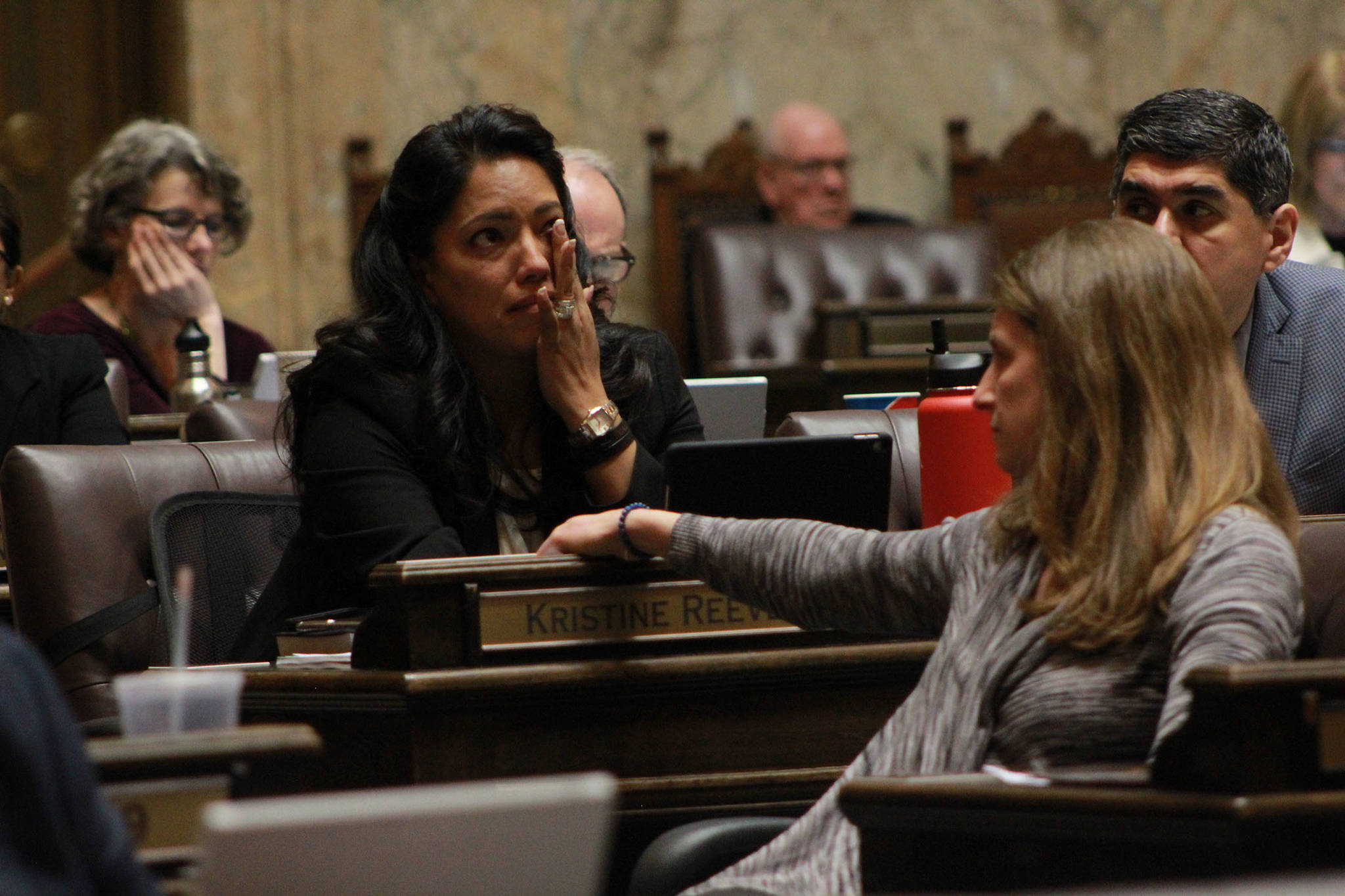A proposed bill that would provide discrimination protections for victims of domestic violence or sexual assault easily passed the House of Representatives. House Bill 2661 makes it unlawful for an employer to fire employee or discriminate in hiring based on victimization of sexual assault or domestic violence. It also mandates employers to provide reasonable safety accommodation if a victim requests it.
“Being employed is absolutely key and a huge help to women and others who are experiencing domestic violence to get out of the situation,” said Rep. Beth Doglio (D-Olympia), the bill’s primary sponsor. The bill passed the House of Representatives unanimously Feb. 7 and was heard in the Senate Committee on Labor and Commerce on Feb. 19. It is scheduled for executive session in that committee on Wednesday, Feb. 21.
Under Washington’s existing Domestic Violence Leave Act, all employees have a right to take unpaid time off work, or earn paid leave to obtain assistance for issues related to domestic violence, sexual assault, or stalking. This is meant to help victims and their families address legal issues, obtain treatment for physical or mental health, or find other services.
Under the proposed bill, an employer is allowed to require verification for the safety accommodation an employee is seeking. The accommodation also has to be within the employer’s reasonable ability.
Tammie Hetrick, chief operating officer for the Washington Retail Association, said she anticipates some retail employers not being able to accommodate some survivor’s needs. For instance, it’s hard to enforce protection orders an employee may require in a retail setting. She suggested working with the Washington Labor and Industries crime victim program to clarify employer responsibilities.
David Ward, an attorney for Legal Voice, a women’s rights legal advocacy group, said HB 2661 is a way to close a gap in existing protections for people with abusive partners. It ensures a legal remedy if an employee is discriminated against based on his or her status as a survivor of domestic violence or sexual assault.
For instance, he told a story about a woman who worked as a server at a restaurant and had to take out a protection order against a violent former partner. Ward said she was fired after telling her employer that she had the protection order. Under existing law, she had no legal remedy for her loss of employment.
Often times, an abusive partner will undermine a victim’s employment as a deliberate effort to keep them under their financial control, according to Washington State Coalition Against Domestic Violence (WSCADV) public policy coordinator Tamaso Johnson.
In its Fatality Review Project, WSCADV tracked cases in which perpetrators of domestic violence kill their partner. Part of the project included a report on economic stability related to domestic violence. It showed that in seven out of nine cases reviewed, a victim of domestic violence homicide was economically dependant on her abuser.
“Stable employment and access to reasonable accommodations on the job can be a vital bridge to safety, stability, and independence for many,” Johnson said during the bill’s hearing. “When survivors lack these options and protections, the results can be tragic.”
This is an edited version of a report produced by the Olympia bureau of the Washington Newspaper Publishers Association.








